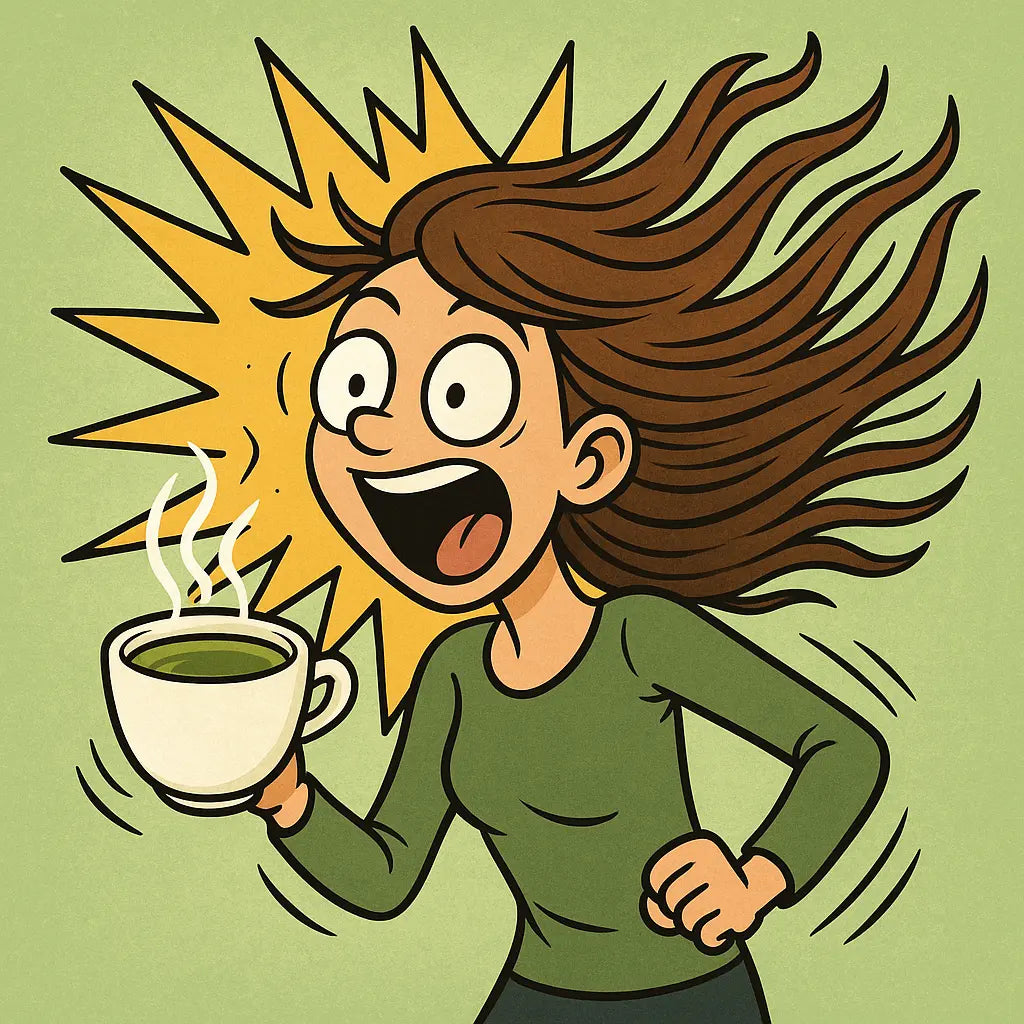Ever catch yourself reaching for a green tea, hoping it's a gentle pick‑me‑up—but then wonder, “Does all green tea actually have caffeine?” Trust me, you're not alone. Let’s cozy in and explore this—because understanding your tea can make each sip both mindful and truly yours.
🍃 So, does green tea have caffeine?
Yes. Every green tea made from the Camellia sinensis plant naturally contains caffeine. It’s not artificially added—it’s nestled in the leaves themselves, a gentle defender of the plant. But here’s the reassuring part: most green teas have much less caffeine than coffee or black tea.
How much caffeine are we talking about?
- A typical 8‑ounce cup usually delivers 30–50 mg of caffeine — that's about half what you'd get from a similarly sized coffee.
- Some sources even say around 20–29 mg per cup.
- And sure, if you're sensitive, that caffeine could still sloooow you down at night.
But here’s the twist…
Not all green teas are created equal.
Factors that shift caffeine levels:
- Tea type – Matcha and gyokuro are shade-grown and powdered, so you're drinking the whole leaf, not just an infusion. Matcha packs ~70 mg per serving; gyokuro can range 120–140 mg — yes, more than some coffees!
- Leaf age & harvest timing – Younger leaves have more caffeine. So first-pick teas (like sencha) have more than stems or older leaves (like bancha or kukicha).
- Brewing style – Hotter water and longer steeping = more caffeine released. Cold-brewing or cooler water pulls less.
Want less caffeine? Here’s how:
- Choose low‑caffeine varieties: go for hojicha or kukicha—roasted or stem-heavy teas that sit around 18–40 mg per cup. Our High Zing 5500 Green is a less bitter tea also promoting less caffeine.
- Brew mindfully: use slightly cooler water (~70–80 °C), shorter steep (under 2 minutes), or cold steep.
- Opt for decaf or herbal blends: like mint or chamomile, if you're sensitive. (Heads‑up—decaf still has trace caffeine!)
Why this caffeine‑variance matters to you
- Mindful energy – A small caffeine dose paired with L‑theanine creates that famed “calm clarity” green tea effect—gentle and focused.
- Holistic health – You're savoring antioxidants like EGCG, not over‑stimulating yourself.
- Ethical & sustainable choices – Shade‑grown teas often come from farms prioritizing terroir, fairness, mindful harvesting—all aligning with your values.
Quick FAQ for curious minds:
| Question | Answer |
|---|---|
| Is caffeine-free green tea possible? | No — anything from Camellia sinensis has caffeine unless it’s been chemically removed. |
| Is matcha a high-caffeine exception? | Yes. You're whisking in the whole leaf, so expect ~70 mg (or more) per serving. |
| Will steeping twice help? | A second steep has much less caffeine — yes, you can absolutely do that! |
Let’s wrap this up
Here’s the thing: yes, green tea has caffeine—but how much depends on what kind of tea it is, how it's processed, and how you brew it. That variability is empowering. You get to tailor your ritual: whether you’re aiming for a morning clarity boost, a gentle afternoon lift, or a calm pre-bedtime cup.
So next time you're sipping with intention, remember: your tea isn’t just a drink. It’s a moment of connection—to your body, your values, and your day. Brew it with care, savor each nuance... and let each sip support your balanced, mindful lifestyle.
Here’s to your next conscious cup—may it be just right for you. 🍵




